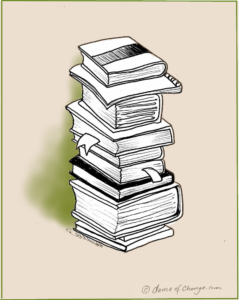Who is Steve?
I had the good fortune of getting to interview Dr. Steve Terrell, a leading expert in the field of developmental trauma. He has performed more than 25,000 individual transforming touch sessions. Steve has developed his own touch-based training called Transforming the Experience-Based Brain. It’s a regulation based approach to working developmental trauma that he has taught to thousands of students from around the world. And he is hosting one of these trainings in STL in Sept 2023!
He’s also still a practicing therapist in Texas at the Austin Attachment and Counseling Center in Austin, Texas. Steve has written two books. One is called Nurturing Resilience, a book for therapists about helping clients move through developmental trauma that he wrote with Kathy Kain. And the other is a new release called TEB LIKE 123, a book for parents and children that Steve coauthored with Shiri Sher.
Why Touch is Important in Healing Developmental Trauma
Touch has the power to heal even a very disorganized, nervous system. It can be used as a regulation intervention at any age. We never grow out of our need for touch. Touch is one of the earliest forms of nurturing and regulation, starting from infancy.
Developmental trauma is anything that interrupts the development of the human from conception on. Usually this shows up in a person’s behavior.
Shock Trauma vs. Developmental Trauma
Shock trauma is what we hear most about when we think of post-traumatic stress disorders. It is when a traumatic event occurs and after that event your life is different. With shock trauma often all we have is a memory of the event and the desire to return to life before the event. There is a story, image, or narrative.
Conversely, in developmental trauma we don’t know what it was like before. Often there is no memory of it. Nobody has that information, so it’s like we’re working in the dark. That’s why a therapist’s ability to hold space is so important. Being present and building trust in the relationship are key. So is, letting go of the need to be the expert.
How to Work with Touch even in a Virtual Space
You can learn and work with touch intentionally using the same protocols that you would if you were in person. The pandemic taught us that it actually works really well.
The Language of Touch
Before using physical touch it’s important to use collaborative language. Instead of, I’m gonna do this to you. We are gonna do this. We are going to allow this to expression. Co-regulation can only happen through collaboration and only in the context of safety.
For Body Workers
It is important to keep in mind that you can listen no matter how you’re trained. It doesn’t matter what school you went to. Massage and body workers oftentimes feel like they’re not doing enough. They want their client to leave happy. They want them to leave like “oh, that really felt good”. I really try to get a release of some kind. Your client doesn’t need to feel great when they’re done. What you want to say is “I’m going to support you even if you feel bad.” That’s the goal. You don’t need to fix anybody.
How the Transforming the Experienced-Based Brain (TEB) training works
There are three modules that build on each other. Each takes three and a half days. All the lectures are pre-recorded and on online. You get to view them 30 days before the in-person training. After viewing the videos, you can ask questions at the in-person training which is hands-on learning. Throughout the training, 6-7 interventions are gonna be taught to you. So you’re gonna get at least that many times on the table as the client and as the therapist or practitioner, and as an observer. Each day we’re doing an enhancement or a piece of work. We explain why this is a regulation focused intervention and why it’s important. Each module you are given plenty of time to ask questions and process as a group. It’s an intense and rich three and a half days of training.
Post-Training Perks
After the first module, Steve or Robin Sullivan (lead assistant) gives a free online consultation every Thursday morning. Anyone who’s finished module one can join. Usually around 65 to 75 show up. This is followed by a 45 minute guided healing process. You will be guided through the protocol and enhancements. Every Tuesday at 1:00 CST Ellen Keating does a weekend review and she goes into a different enhancement and how to work with those enhancements. And that’s free as well. Also, there is a 50% discount should you decide to retake the training.
Resources:
Austin Attachment and Counseling Center
Nurturing Resilience by Steve Terrell and Kathy Kain
Scholarships are available for those who qualify
6 Principles of Healing Developmental Trauma using Touch


